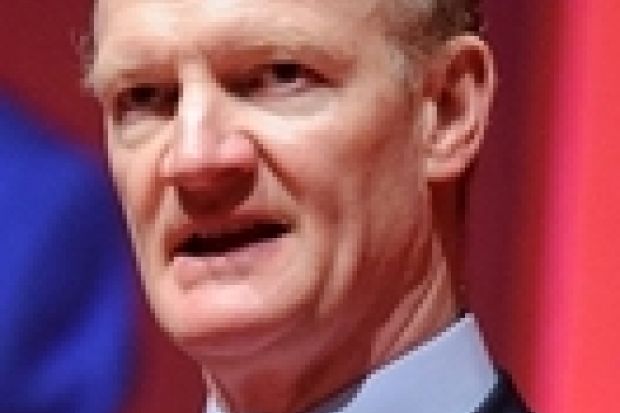David Willetts has been forced to speak in the House of Commons to defend proposals that universities should be allowed to recruit unlimited numbers of home students who fund their tuition fees without recourse to government loans.
In a response to an urgent Parliamentary question tabled by Labour, the universities and science minister insisted that well-off students would not be able to “buy” their way on to a higher education course.
Under the idea – first revealed by Times Higher Education on 7 May – students who do not take out state-funded loans would be removed from the current controls on places for undergraduates faced by English universities.
In principle, this would include those from families rich enough to pay fees upfront, but Mr Willetts insisted in the Commons today that the government was merely looking at how to make it easier for students to be sponsored by employers and charities.
He said any such scheme, which would be subject to consultation following its inclusion in the upcoming higher education White Paper, would not breach the idea that access to a university “must be based on ability to learn not ability to pay”.
However, John Denham, the Labour shadow business secretary, said the idea would create a “two-tier system – one for the best qualified and another for those with the fattest chequebooks”. He asked Mr Willetts to explain exactly what type of charity would be willing to pay tens of thousands of pounds to sponsor a student.
Meanwhile, other Labour MPs asked the universities minister to clarify whether this new arrangement would include independent schools that are charities and wealthy families that set up charitable trusts.
Mr Willetts said it was “not the intention” of the government to allow private schools to fund places, but stressed that it was up to universities to control admissions provided there was “no reduction in entrance standards”.
The row, which has also prompted prime minister David Cameron to state that rich students would not be given better access to university, follows a flurry of responses to what the government is considering.
Aaron Porter, president of the National Union of Students, said the government was “yet again tossing out a poorly conceived policy idea in an attempt to disguise the chaos it has created in university funding and the shortfall in finances that has created”.
Les Ebdon, chair of the Million+ group of new universities, said the reason the government was floating the idea was “because it has indicated it will not fund all the people who are qualified and want to go to university in the future”.
Steve Smith, president of Universities UK, said the proposal was “simply one of many” being looked at to increase student choice and participation, but added that it was “vital that such proposals promote social mobility and safeguard the quality of the UK higher education system”.
Meanwhile, Andy Westwood, GuildHE chief executive, argued that allowing an increase in “off-quota” numbers could be “socially progressive”.
“With the right incentives, this could lead to more innovative and flexible choices,” he said.
His comments were seized upon in the Commons by Mr Willetts, who reminded Mr Denham that Mr Westwood was his ministerial special adviser when Labour was in government.
